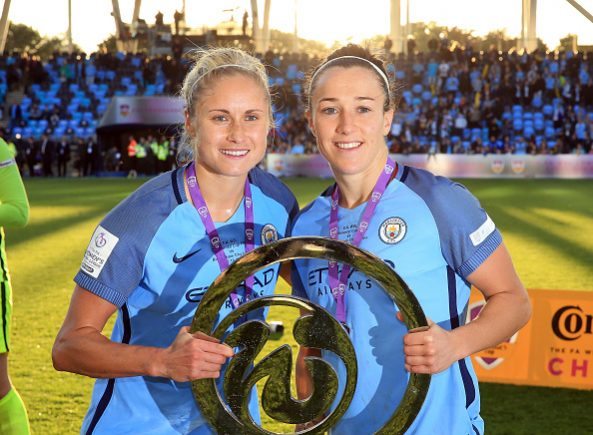Manchester City Women have achieved the double League and Conti Cup after beating Birmingham City on Sunday.
Although they are clearly leading the way, it doesn’t mean their best model should be the best and only one.
Manchester City get a lot of unfair criticism for buying the title but those who have been in the women’s game for years have been crying for that kind of investment in the game.
10 years ago, teams were training twice a week and it was pay-to-play for a lot of teams at the highest level in the FA Women’s Premier League. There has been a massive jump in training conditions and infrastructure since 2013, a revolution launched by Liverpool Ladies.
The question today is – can other teams be competitive against the Champions next season?
I certainly believe so.
We know that Chelsea and Arsenal operate under the same business model and are provided with money and resources from their parent club at a high level (though not comparable with the money in the men’s game) and therefore are competitive off-the-pitch.
Those two teams certainly failed on the pitch this season and need to do better next.
So what would be the other business model if a club does not get given £1m+ to spend on the infrastructure, logistics and player wages?
Off the pitch, it means finding alternative funding sources via sponsorship and this is probably the most difficult problem.
Finding companies or individual who are willing to invest in women’s football with a prospect of a limited return is not easy.
The marketing value of a Ladies team shirt compared to the men’s is not easy to quantify and how hard it is to attract a big brand name is difficult to know.
Basically, any team that is not supported by a rich and willing men’s team will have limited resources and will need to be clever on and off the pitch with players recruitment and tactics.
At the end of the day, it is still 11 v 11 on the pitch and teams can manage to trouble Man City. Liverpool drew 0-0 and 1-1 with them in the League and Birmingham only lost 1-0 this weekend in the final after extra time and that was because of an unfortunate goalkeeping error.
I think those teams need to find the right players that complement those at the clubs and have a proper football game plan to compete with bigger teams.
They need to work harder on their strengths and weaknesses to eliminate mistakes and poor decision making, because that is what you see at the bottom of the table in WSL1 – too many individual errors and decisions that lead to goals.
If we come back to the funding side, should Bristol and Yeovil get promoted on the pitch from FA WSL2, it is quite clear that they will have to improve their budget, one way or another, to be able to compete next season just to stay up.
We know that Bristol, previously Bristol Academy have now paired with Bristol City to give them a stronger base and they do train on daily basis like the WSL1 sides.
We also know that Yeovil are obviously not in a business model like City, Arsenal and Chelsea and will therefore need to find alternative funding.
Should Yeovil’s potential promotion get validated by the FA, it will be an interesting case study to watch. The same thing could be said of Durham Women, who are not backed by a men’s team either.
If we look in the third tier of women’s football, West Ham Ladies have accused their parent club of sex discrimination.
Charlton Women lost their funding when the men’s team was relegated from the Premier League.
A team like Spurs Ladies, that could get promoted to WSL2, would need their parent club to put in a bid with enough money to be accepted.
Will that be the case? Being backed up by a men’s side is definitely not the panacea.
Women’s football is growing quickly but on the financial side, it is still an infant and there is still a lot of hard work to be done to make it sustainable.
